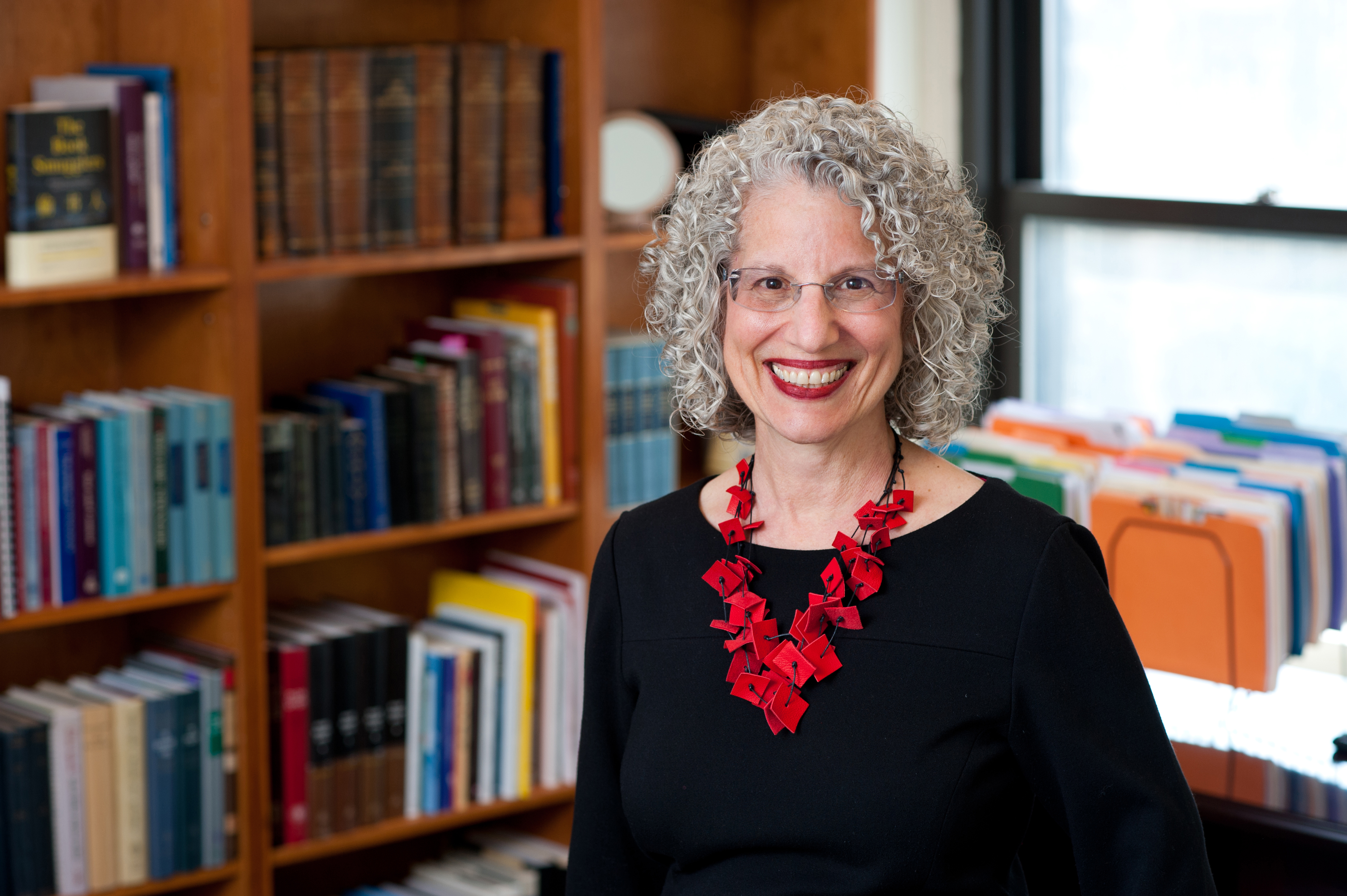My four years at Barnard were some of the most formative of my life. Outstanding faculty and bright, ambitious, creative classmates challenged me to think more critically and broadly. At Barnard, I gained the tools to develop my own voice and the confidence to use it.
In 1886, the Jewish Theological Seminary (JTS) established itself as an intellectual innovation hub that supports generations of Jewish leadership and inspires important discussions on contemporary social issues. This past June, Shuly Rubin Schwartz ’74 became the eighth chancellor of JTS and the first woman to lead the academic and religious institution in its 134-year history.
“I am coming into this position at a very unique and uncertain time in history,” Schwartz said of the appointment. “We are living through a pandemic, and every academic leader is reckoning with how we approach education moving forward. However, challenging moments often provide room for growth, and I am excited to play a role in shaping the transformation of higher education that will inevitably occur as we manage this moment.”
Schwartz previously served for 25 years as dean of JTS’s undergraduate school, the Albert A. List College of Jewish Studies, and dean of the Gershon Kekst Graduate School for 10 years. She has been provost of JTS since 2018. Schwartz also spearheaded the creation of a joint MA/MPH program on Jewish ethics with Columbia University’s Mailman School of Public Health. Under her guidance, academic relationships between JTS, Barnard, and Columbia were renewed and strengthened, further developing List College’s dual-degree programs.
“I feel fortunate to have such deep experience with JTS as an institution and such strong working relationships with outstanding colleagues,” Schwartz said. “What an advantage this will give me! I will be able to develop a plan for the future quickly and bring it to fruition, and I feel so privileged to be able to do so.”
In addition to her extensive leadership experience, Schwartz has published numerous articles and award-winning texts on American Jewish history and culture. She also serves on the academic council of the American Jewish Historical Society and on the academic advisory boards of the Jacob Rader Marcus Center of the American Jewish Archives, the Hadassah-Brandeis Institute, and the Jewish Women’s Archive.
“As a historian, I believe that knowing one’s history is essential to making history,” Schwartz said. “American Jews have creatively developed serious Jewish learning, vibrant Jewish living, and flourishing Jewish culture in ways that highlight the challenges and opportunities of thriving as a minority group. These insights will inform my view of the current landscape, enriching my perspective as I shape JTS’s priorities for the future.”
Schwartz credits her time at Barnard for shaping her leadership style and desire for academic innovation, as the College instilled in her deep passions for history and teaching. “My four years at Barnard were some of the most formative of my life,” Schwartz said. “Outstanding faculty and bright, ambitious, creative classmates challenged me to think more critically and broadly. At Barnard, I gained the tools to develop my own voice and the confidence to use it.”
Learning to use one’s voice to empower others was instrumental to Schwartz’s professional journey into academia. “Barnard also modeled outstanding female leadership,” she said. “In aspiring to this myself, I also take great pride in the many female leaders that I have mentored over the decades and who are now accomplished colleagues.” Schwartz aims to continue her success in mentoring women scholars and leaders in her new position.
“As a historian, I recognize the significance of being the first woman appointed to the role,” Schwartz reflected, “and I also recognize that the JTS of today is one in which many women serve in important leadership positions.”
Schwartz noted how Barnard’s “feminist sensibility” encouraged her scholarly interests in Jewish gender and women’s studies, which continues to inform her teaching practices and her larger visions for the Jewish community. “Just as you cannot understand the Jewish experience in its fullness without studying Jews diverse in gender, geography, class, literacy, and more, so too must we understand the needs of today’s Jews — including those whose voices are often marginalized,” Schwartz said.
In the face of an extraordinary set of circumstances and challenges, Schwartz looks forward to seeing her academic visions for JTS become reality while supporting the incoming generation of students. “I am excited to amplify JTS’s voice beyond our immediate community and to foster opportunities for our students to engage in social justice initiatives,” Schwartz said. "I’m looking forward to nurturing an environment that not only welcomes diversity of backgrounds and viewpoints but also convenes conversations on the critical moral and ethical questions of our time."
—SOLBY LIM ’22

